SAMUEL KIM
I. Past Echoes
“… I want our nation to be the most beautiful in the world. By this I do not mean the most powerful nation… It is sufficient that our wealth makes our lives abundant… that our strength is able to prevent foreign invasions. The only thing that I desire in infinite quantity is the power of a noble culture. This is because the power of culture both makes ourselves happy and gives happiness to others.”
– Excerpt from Kim Koo (김구)’s “My Desire”, 1947
When Bong Joon-Ho’s Parasite won the Oscar for Best Original Screenplay, I sat back in relief, thinking the best part was over. Then came International Feature Film. Best Director. Ending with Best Picture.
Making Oscar history, ‘Parasite’ wins best picture | Source: © Associated Press/YouTube
It dawned on me that I was witnessing a watershed moment in film history — the first foreign entry to win the Oscar for Best Picture — but I was excited for a different reason. Parasite’s recognition came at an incredibly apt time; 2019 marked the 100th anniversary of Korean cinema, and two decades since the release of Korean blockbuster Shiri in 1999. This part-romance, part-spy thriller grossed higher than Titanic in South Korea, spurring a renaissance sustained by a stream of widely-acclaimed melodramas, thrillers and horror flicks.
These are films that — for all the plaudits received at Venice, Berlin and Cannes — failed to catch the attention of most American tastemakers. No prior Korean film had been nominated for the Oscars, let alone won. Hollywood’s decision was a long-overdue nod to South Korean Cinema; for myself and Korean film enthusiasts everywhere, it was an end to a painful longing for recognition.
Great Korean movies have a knack for correctly taking society’s temperature and dredging up the many raw emotions of Han that have been buried deep inside.
I had a chance to examine that sense of longing, as well as the joy Parasite’s reception gave me, when I stumbled upon Kim Koo’s writing a few days later.
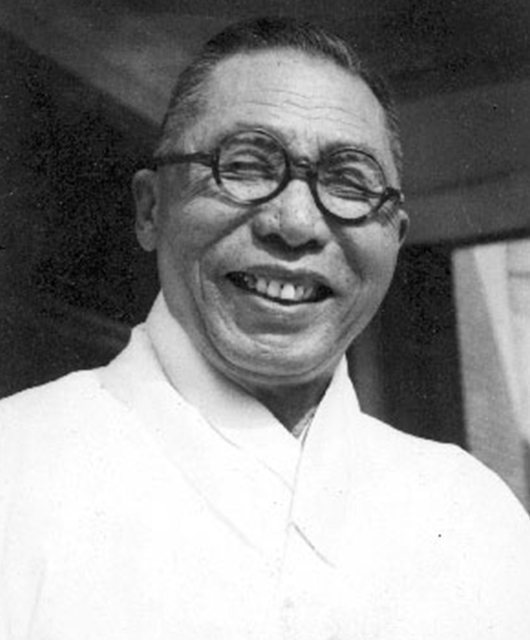
Kim Koo | Source: Wikipedia
Kim was a nationalist writer, President of the Korean government-in-exile, and a prominent voice in the Korean Independence movement. When Japan’s unconditional surrender in 1945 ended nearly four decades of Japanese rule, Kim returned to Seoul as a statesman, but a free and united republic was not what awaited him. He penned his hopes at a very dark time in his country’s history. Korea’s emancipation, a cause to which he had dedicated his life, was undone by the arrival of Soviet and U.S. armies. Kim and his compatriots had no say when a decision was reached by Allied Powers to divide the peninsula. U.S. military advisors dismissed the likes of him as potential leaders, opting instead to back someone more aligned with regional interests. In newly-minted North and South Korea, many of Kim’s former peers in the movement were now suspected “enemies of the state,” vulnerable to imprisonment and torture at the hands of state security.
Reading his journal, I felt the writer’s sorrow, that bitter feeling I associate with being wronged. Despite this, the pride and foresight he had for Korean culture left a lasting impression on me, especially given the time during which those beliefs were expressed. With Korea’s autonomy once again left at the altar, Kim’s specific desire to propagate “a noble culture” seemed odd to me at first. A case of misplaced priorities. But it didn’t take long for those words to speak to me, and something welled up inside of me when it did: a country doesn’t simply acquire a noble culture, it is inherently capable of it. Korea’s culture has always been great, and has always deserved the attention it is getting now. Its status as Asia’s “shrimp among whales” — a sacrificial lamb to regional power plays — does not devalue its customs, beliefs, and art. Kim understood all of this, and longed for his country to find its rightful place as a cultural giant. That both his despair and optimism resonated with me, a Korean-American with limited exposure to the motherland, prompted me to revisit an emotional concept that I grew up hearing all too often: Han (한).
II. Han
Film is culture, a window of sorts to a country’s soul. When done right, it provides us with more than insights into a unique culture and people; it offers to heal a sick society through compelling psychoanalysis. In Korean Cinema, Han is a constant theme for psychoanalysis — so what is it? Han is a parent’s pain of bereavement, the hopelessness of a domestic abuse victim, and an activist’s longing for a better future. It is embodied by the overworked salarymen that drink to forget about the dreams they gave up on years ago, and by the downcast unemployed college graduates about to give up theirs. Han is the public’s vow to avenge celebrities driven to suicide due to blackmail, and anger directed at a government reluctant to fully investigate the Sewol Ferry disaster, which took the lives of 250 high schoolers.
Agony for waiting South Korean families | Source: © CNN/YouTube
What permeates Korean society is a concept that covers pent-up grief, resentment, revenge and cautious optimism, and no two Koreans will give you the same explanation. There is resounding agreement, however, when discussing the roots of these emotions. For Kim and his contemporaries, their Han was Korea’s history; the tragedy of losing their country to foreign powers mirrored their respective personal suffering. The collective trauma has since left an indelible mark on the culture’s subconscious, gaining a stronger foothold as Koreans fought a bloody civil war, learned to endure long stretches of military rule, and continue to live with the weight of unresolved historical disputes (i.e. comfort women) today. Consequently, Koreans often react to perceived injustice with widely-varied, but undeniably raw emotions.
There’s a flip side. Those same emotions are also evoked in times that call for solidarity. Koreans often express Han in the form of “acute pain in one’s guts and bowels”, as observed by theologian Suh Nam-Dong, but they are just as capable of communicating it by way of “an obstinate urge to take revenge and to right the wrong.” The ability of Koreans to come together in times of crisis has always impressed me. Growing up, I remember stories my parents told me about the 1992 LA Riots and how, abandoned by the LAPD, armed Korean store clerks banded together to protect their businesses from looters. When South Korea entered an unprecedented economic crisis in 1997, 3.5 million citizens voluntarily gave up their personal jewelry to help the government pay off its IMF debt in melted gold. Only three years ago, protests in the millions demanded the impeachment of former President Park Geun-Hye after revelations of corruption, censorship, and nepotism, achieving a peaceful impeachment rarely emulated elsewhere.
When we no longer hear stories about foreign oppression or dictatorships from the generation that lived them, the source of the sorrow and relief that we crave will be replaced by social inequality, polarized politics, and environmental degradation.
The culmination of a politicized population and Han’s duality is the “Korean New Wave,” where bold filmmakers revel in extremes and unpredictability. Their films are notably socially-informed and do not shy away from brutal subject matters. The excessive gore in vengeance-themed movies like Park Chan-Wook’s Oldboy (TW*) is actually central to the storyline, and the liberal use of black humor will not sit well with uninitiated American viewers. Korean moviegoers have a habit of rewarding good local films by watching them in theaters, making Korea a rare market where local films consistently outperforms their Hollywood counterparts at the box office; and while films like these have rarely appealed beyond the indie film space here, they are record-breakers in South Korea.
Oldboy – Official UK Trailer HD | Source: Arrow Video/YouTube
And they are healing, as I’ve said earlier. Great Korean movies have a knack for correctly taking society’s temperature and dredging up the many raw emotions of Han that have been buried deep inside. Within the two-hour screening time, Korean viewers are taken to all walks of emotions: sorrow and hopelessness, but also bafflement, laughter, shock, disgust — ending in most cases with a hope not necessarily conveyed on screen. The “answer” the movies provide at the end comes in the form of relief, a kind of emotional cleanse. Films such as Parasite communicate something that the viewers know well, owing to their country’s turbulent past: it is only after reflecting on the violence, despair or mistreatment, that the value of starting over is truly understood.
Having felt this, it pains me to think that those less privy to Korean culture might simply walk away as the end credits roll — processing the storyline and cinematography but nothing more. It happened with Bong Joon-Ho’s 2006 monster movie — The Host (괴물). Like Parasite, it is a mixed-genre film about a dysfunctional family taking on a challenge; Gang-du, a dull-witted single father to his daughter Hyun-Seo, runs a snack bar by Seoul’s Han River with his father. Additional family members include Gang-Du’s younger sister Nam-Joo, a competitive but indecisive archer, and younger brother Nam-Il, an alcoholic former student activist. A brief synopsis: the movie opens with a Korean scientist at a U.S. Forces-Korea facility pouring an undue amount of formaldehyde into the river, which runs through the heart of Seoul. A hideous mutated fish monster is born. Emerging from the river, the monster terrorizes onlookers in broad daylight before diving back into the water, taking Hyun-Seo with it. As they are evacuated from their store, then forced to dodge a quarantine after U.S. claims of a virus spread by the titular “Host,” Gang-Du and his family struggle to rescue Hyun-Seo by taking matters into their own hands, however flawed their efforts.
The Host (2006) – Trailer | Source: © Shudder/YouTube
Along with rave reviews, U.S. critics noted the movie’s seemingly blatant anti-Americanism. An American scientist orders the dumping of chemicals, which creates a monster that purportedly carries a virus. U.S. doctors are shown reluctant to share important medical information, and treating suspected patients like Gang-Du with little empathy; later appearances of U.S.-made monster repellent “Agent Yellow” is clearly a play on Vietnam War-era “Agent Orange.” When the film eventually reveals there is no virus, the deployment of “Agent Yellow” has parallels to the 2003 U.S. invasion of Iraq and weapons of mass destruction that were never found.
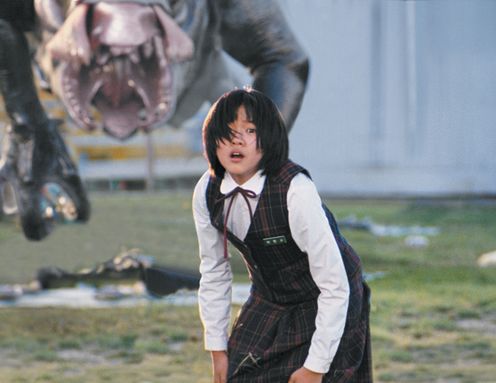
Source: VCinema
Completely lost in this Westernized observation — which Bong dismissed as oversimplified — was the fact that The Host is a metaphor for the history of South Korea, meant for a Korean audience. It is critical of U.S. policies, but more so South Korea’s complicity in keeping the system and its citizens who accept it. The bulk of the movie pokes fun at the Korean government’s incompetence and inability to hold its own against challenges to national sovereignty. The film’s comic bits involve Gang-Du’s dad trying to bribe all the bureaucrats obstructing the family’s rescue mission, as if this were the only way of getting through. The opening scene, a real-life incident from 2000, is representative of current Korean-American relations, characterized by a pattern of reluctant submission by the former. As Gang-Du is apprehended for evading the authorities, a news broadcast explains the Korean government agreed to a U.S. decision that South Korea has lost control of the situation, allowing U.S. chemical weapons to be used within its borders.
Editor’s Note: Spoilers to The Host ahead.
The existing “monster” problem is exacerbated when the weapons cause health problems, and it is Gang-Du’s family — the vast majority of Korean people by extension — that pays the price. Here, staying true to the theme of Han, the film ends on a hopeful note. His daughter dies but so does the monster, killed by a laughably disorganized Gang-Du & Co. that achieves their goal together regardless. The experience is a wake-up call for Gang-Du, who becomes far more mature and alert against danger. At the end of the movie, there’s a great relief in knowing that, just as South Korea is recovering from its dark recent history, so will Koreans one day, turning past traumas into drivers of change.
[…] it is only after reflecting on the violence, despair or mistreatment, that the value of starting over is truly understood.
III. The Personal Significance of Parasite
I was first introduced to South Korean cinema when I was ten, through a movie called Joint Security Area (2000) by director Park Chan-Wook. My introduction was personal. The decision to watch it was a naive attempt at connecting with my mother, who then spoke little English and worried her first son was slipping deeper into the melting pot, becoming “just another American.” Raised outside of Korea and almost exclusively on American shows, I must’ve been at least a little curious to see a protagonist that shared my background.
A Film In Three Minutes – Joint Security Area | Source: MrStillSmiling/YouTube
JSA begins with officials investigating a border incident. North Korean soldiers — two dead and one injured — are found with gunshot wounds in their outpost. When two South Korean border guards are questioned for the suspected murders, a Swiss-born Korean military lawyer is sent to find the truth and de-escalate a fragile situation. What seems like routine, one-sided provocation is turned on its head after an attempted suicide by one of the suspects during interrogation, leading the lawyer to suspect efforts by surviving guards on both sides to protect each other by hiding the truth. Between scenes of questioning, flashbacks show that four of the five soldiers involved were friends. The soldiers — two from the South, two from the North — are shown playing games and trading jokes in and around a North Korean outpost at night. The friendship had developed after a chance encounter, followed by months of written messages, and finally regular visits by the South Koreans. This budding friendship abruptly ends after an unannounced visit by a North Korean officer. Stuck in a Mexican standoff, there’s a brief realization among the characters that their friendship, no matter how genuine, was never meant to be.
The culmination of a politicized population and Han’s duality is the “Korean New Wave,” where bold filmmakers revel in extremes and unpredictability.
Despite not fully grasping the reality of a divided Korea, the movie left me with an enduring feeling of despair, but also an unexplainable relief. The film’s pathos had tapped into an inner melancholy that I had dismissed as “negativity”, giving me a chance to let it out in a way future movies, like The Host, have. That relief soon led to craving, as I entered a crash course in films by Lee Chang-Dong, Kim Jee-Woon, Park Chan-Wook, and Bong Joon-Ho; I laughed with the characters, shed warm tears at their downfall, and railed against the underlying politics. As I went deeper into the rabbit hole, I desperately wanted my friends to feel what I felt — to assure me that what I felt was not unusual — but to no avail.
Bong Joon-ho 봉준호 : Everything is Extreme in Korean Cinema | TIFF 2018 | Source: TIFF Originals/YouTube
Parasite was an answer to my longing, a longing that has since become a personal “Han.” Watching Parasite alone in a crowded New York AMC theater, I was stunned by the visuals, the unpredictable storyline, and all the familiar emotions that the film left me. But my greatest relief from the experience happened off-screen. In awe, I took in the laughter, gasps and faint sobs coming from my left and right; I wondered what struck a chord in the audience that made the film’s cultural references trivial. Did they understand the significance of the scholar’s rock? The humor in the rich family’s “fancy instant ramen”? More importantly, how did this movie achieve what others couldn’t?
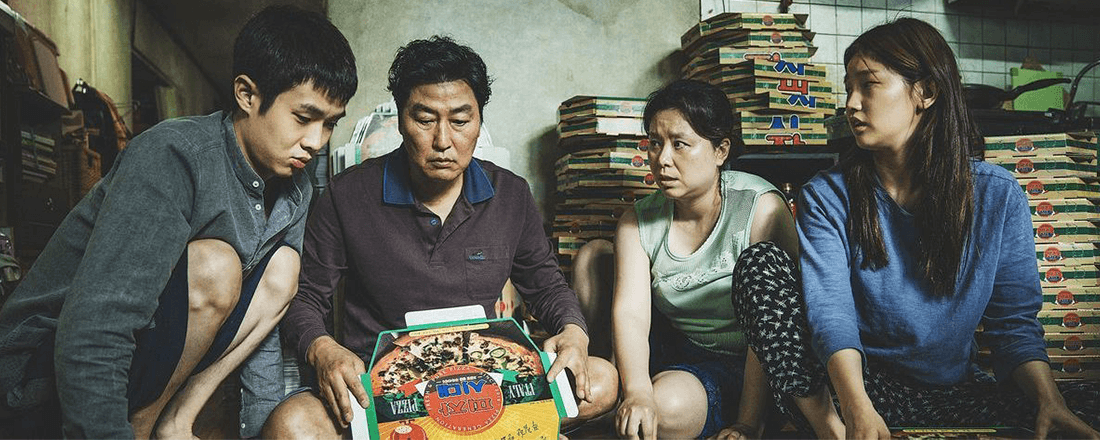
Scene from Parasite | TIFF 2018 | Source: © RogerEbert.com
As Parasite made history at the Oscars, it taught me that I was fixated on the wrong things.
Discussing his movie’s success, Bong once said:
“I tried to express a sentiment specific to the Korean culture, and I thought that it was full of Koreanness if seen from an outsider’s perspective… But upon screening the film after completion, all the responses from different audiences were pretty much the same, which made me realize that the topic was universal. Essentially, we all live in the same country called Capitalism.”
I now know that Han as a concept doesn’t stay constant, just as history doesn’t stay constant. I was wrong to think that it was something I could define. When we no longer hear stories about foreign oppression or dictatorships from the generation that lived them, the source of the sorrow and relief that we crave will be replaced by social inequality, polarized politics, and environmental degradation. Korean films will adjust to these changes, as they always have. And as more people warm up to the “one-inch tall barrier of subtitles”, Han may no longer be the unique concept I had always thought it would be.
And I am beyond excited for the conversations I’ll be having.


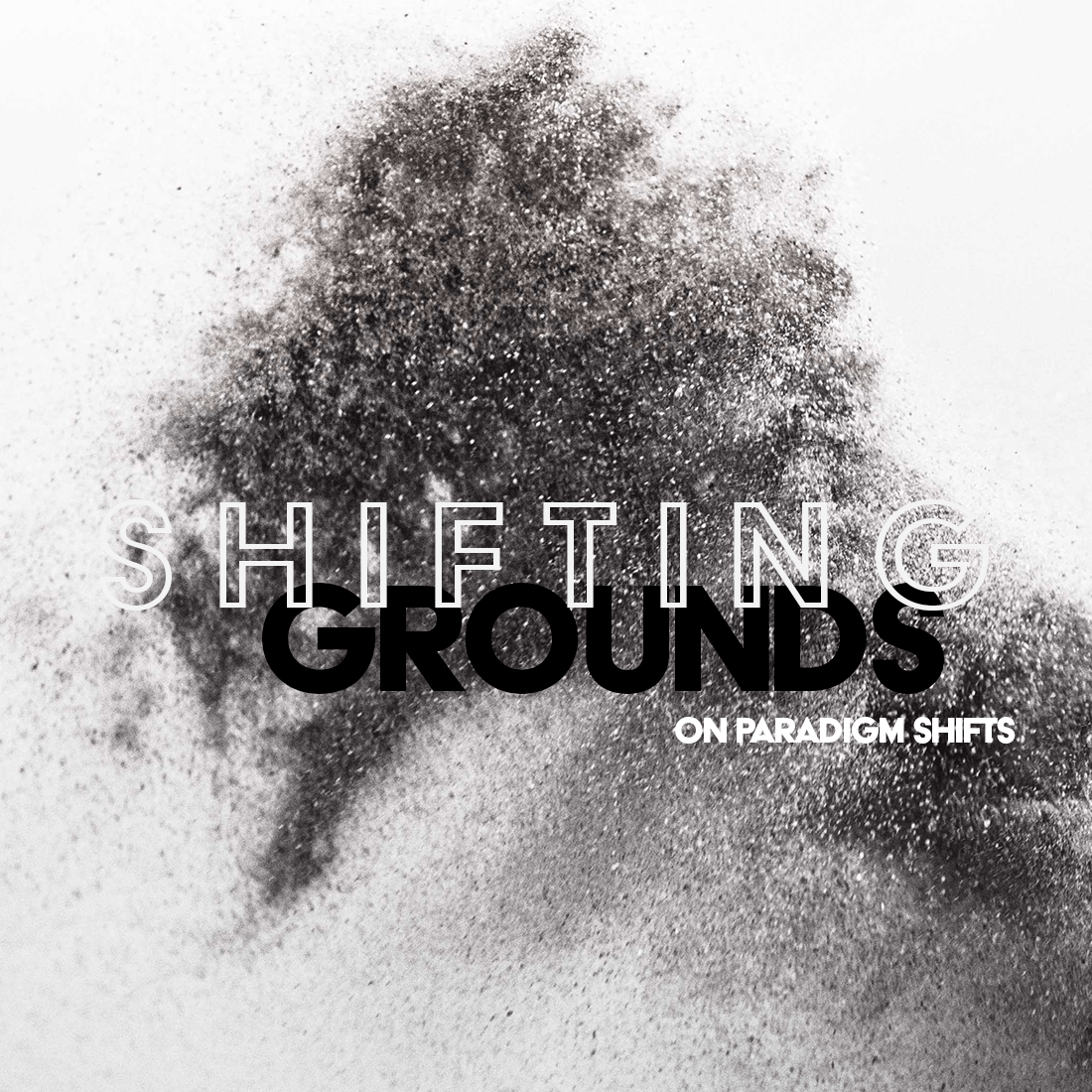

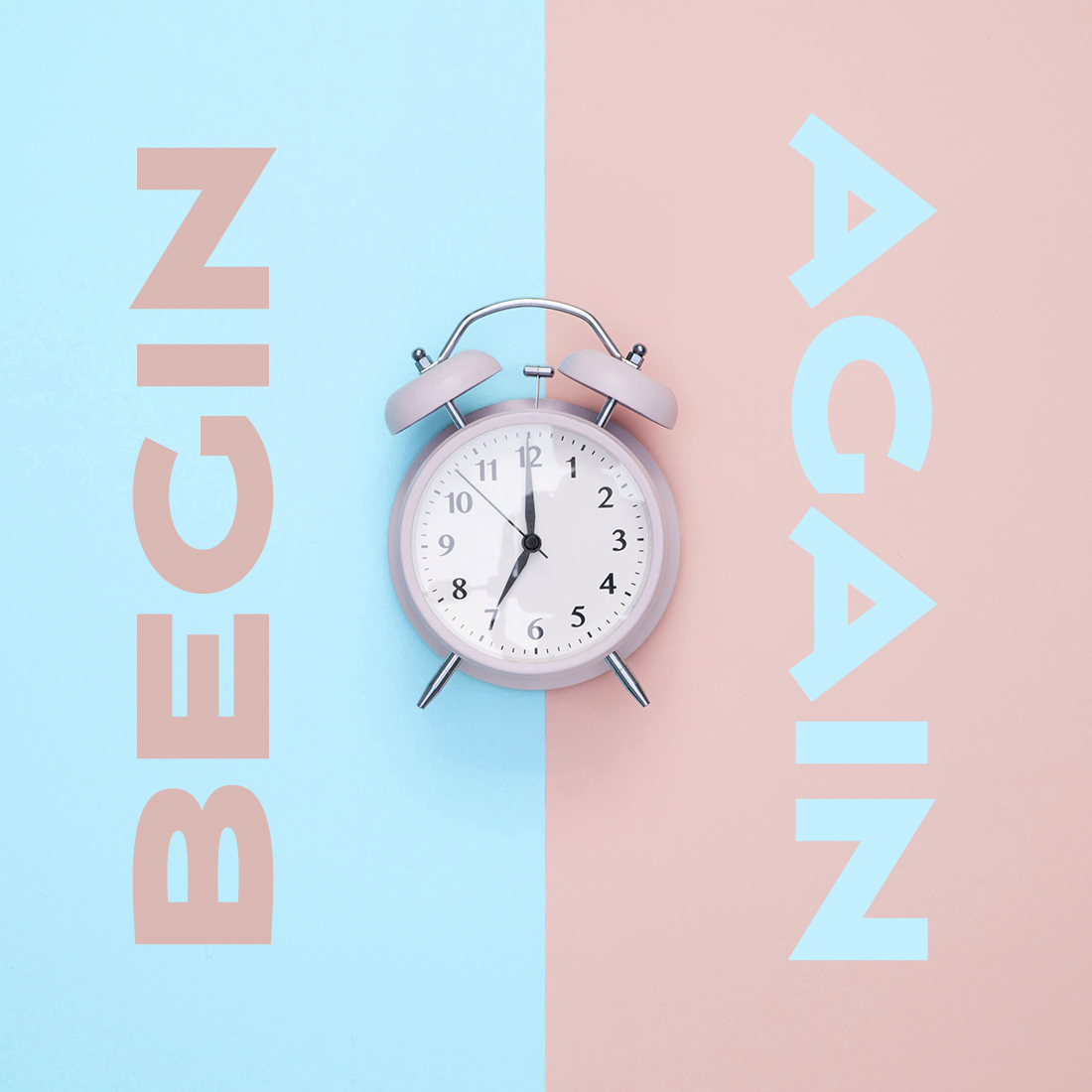

1 comment
Such a well-articulated, insightful piece. Thank you!